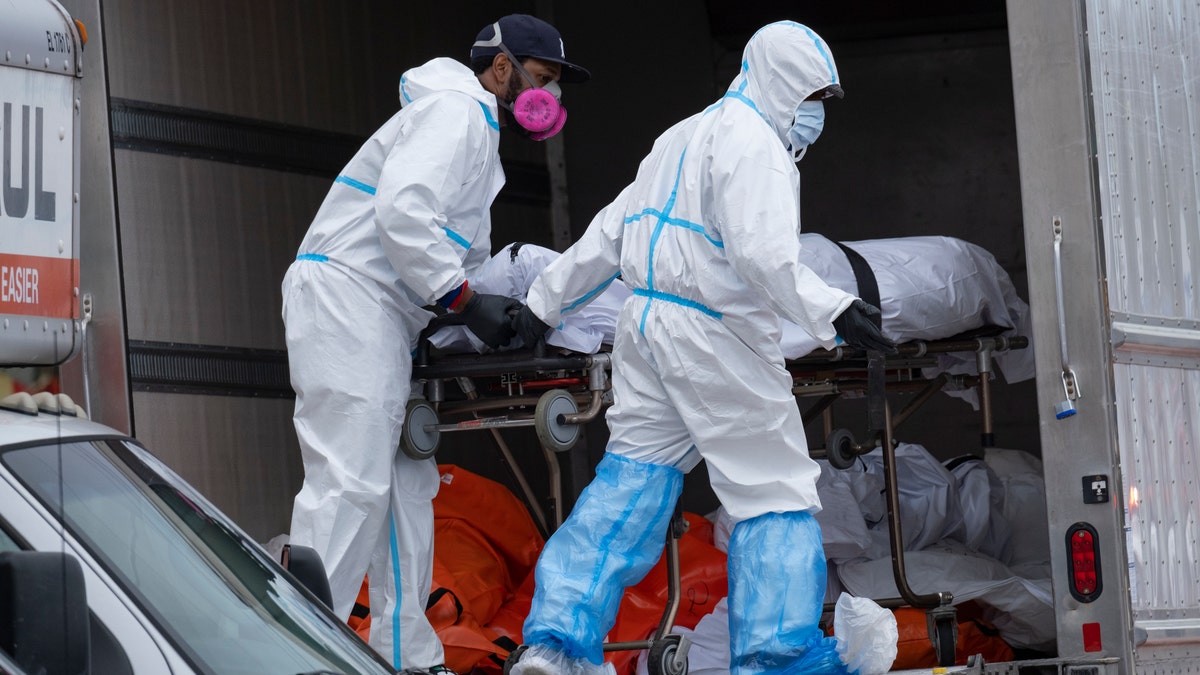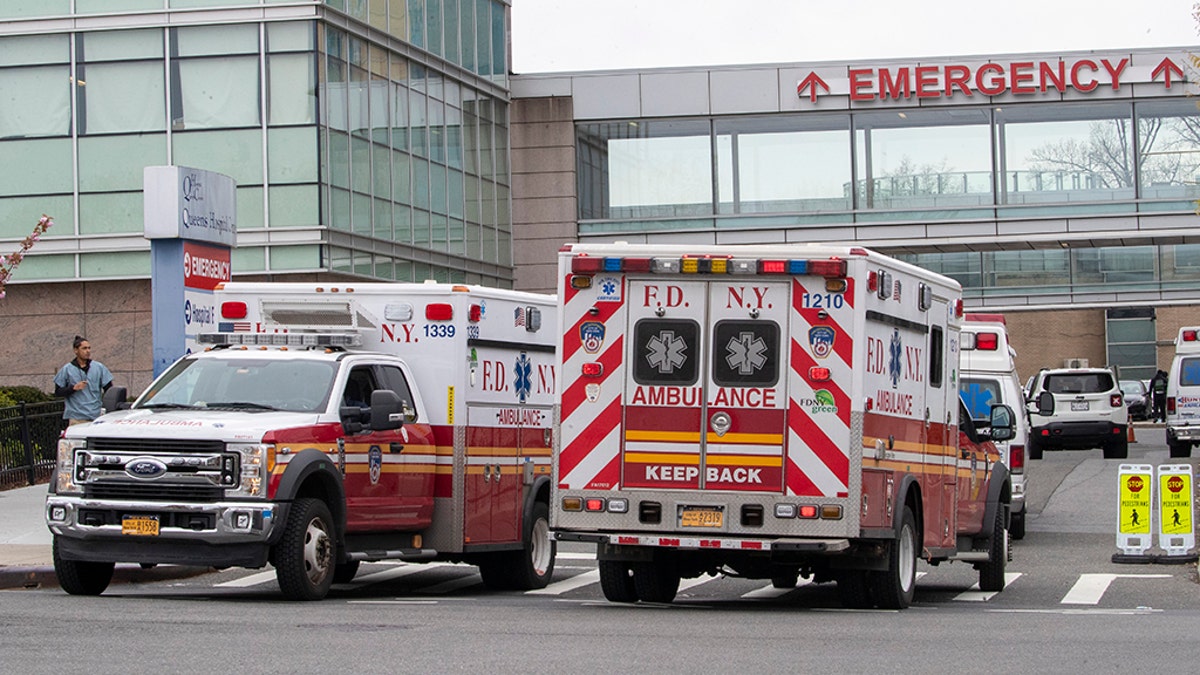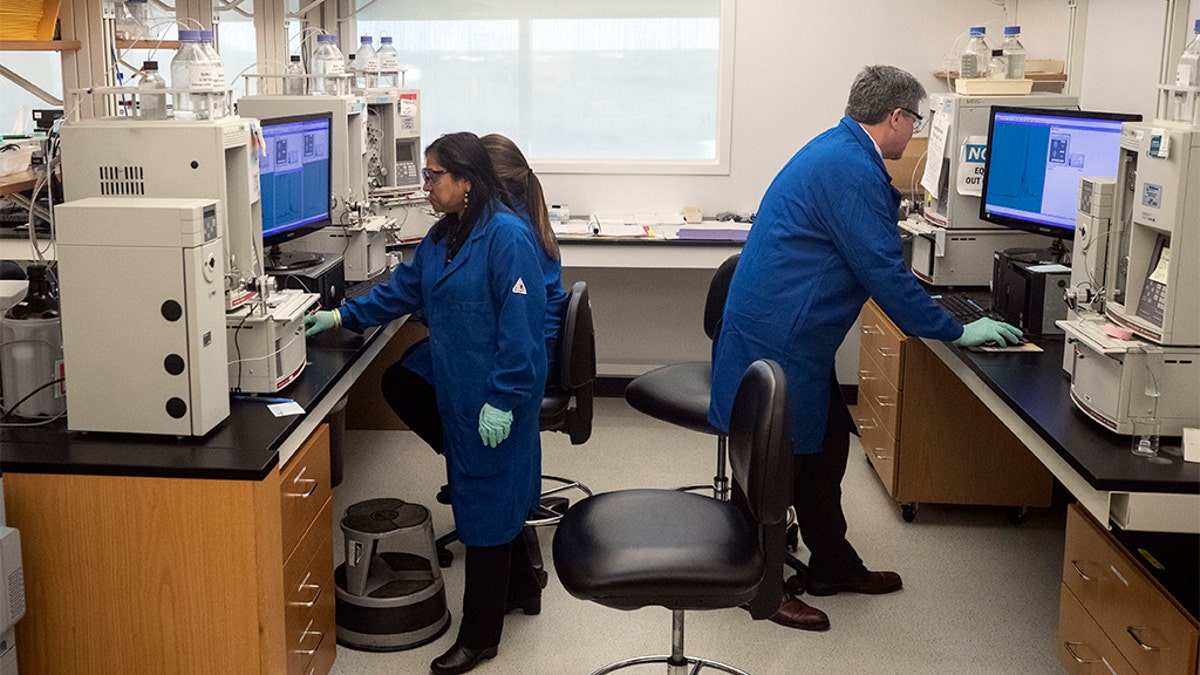Trump: Medicare paying to provide at-home coronavirus testing for seniors
President Trump delivers remarks on protecting America's senior citizens.
Get all the latest news on coronavirus and more delivered daily to your inbox. Sign up here.
If a Medicare patient is diagnosed with – or even presumed to have contracted -- coronavirus, hospitals across the United States are given more money from the federal government to treat that patient, economic assessments show. That amount can as much as triple if the patient requires a ventilator, making some wonder whether there is a financial impetus to overstate coronavirus numbers, with others calling such potential abuse "unlikely."
Medicare, a long-running federal health insurance program for those aged 65 or over – which also happens to be the most vulnerable demographic for an acute coronavirus infection and mortality – functions by paying hospitals a fixed sum depending on which diagnosis the Medicare Severity Diagnosis Related Group (MS-DRG) it falls under.
"These DRG rates are adjusted each year, and that brings up [one] way in which the government has increased payments to hospitals. Budget rules referred to as sequestration, require across-the-board cuts in Medicare because the federal deficit is so high," Doug Badger, visiting fellow for domestic policy studies at The Heritage Foundation, told Fox News. "Congress eliminated these across-the-board cuts during the COVID-19 epidemic. That translates to an across-the-board increase in Medicare payments to hospitals for any admission of any Medicare patient, whether or not they have COVID-19."

Workers move bodies to a refrigerated truck from the Andrew T. Cleckley Funeral Home in the Brooklyn borough of New York, Wednesday, April 29, 2020. Police responded to a report of human bodies in vehicles, which they determined were connected to the nearby funeral home. The New York Police Department notified the state Department of Health, which oversees funeral homes. The coronavirus pandemic has overrun most funeral homes and morgues in New York City. (AP Photo/Craig Ruttle)
However, in the case of COVID-19, the Centers for Medicare & Medicaid Services (CMS) characterizes it under the umbrella of respiratory infections and inflammations, and there are add-ons specific to the illness that was borne out of China late last year and has since infected 1.2 million Americans and claimed the lives of over 70,000.
Recent federal legislation, known as Coronavirus Aid, Relief and Economic Security Act, or CARES Act, has provisions that enable the government to pay more to hospitals specific to the coronavirus pandemic.
"The CARES Act authorized a temporary 20 percent increase in reimbursements from Medicare for COVID-19 patients to account for both anticipated and unanticipated increases in the cost of care for these medically complex patients," explained Dr. Summer McGee, dean of the School of Health Sciences at the University of New Haven.
As Badger highlighted, instead of getting paid the DRG rate, a hospital that admits a coronavirus patient will receive 20 percent more compensation than they would for providing that same care to a non-coronavirus patient.
"Imagine two Medicare patients, one with COVID-19 and another one not, with pneumonia in the same ICU. Medicare will pay, for example, $10,000 for the pneumonia patient who doesn't have COVID-19 and $12,000 for the patient who does," he surmised. "The rationale is that this provides a sort of rough justice method of making sure that hospitals that get a lot of COVID-19 patients also get extra money from the government."

FDNY ambulances are seen entering and leaving the emergency room at Queens Hospital Center. (AP Photo/Mary Altaffer)
Moreover, the Act established a $100 billion fund to aid hospitals – of which some $30-$50 billion is "used to reimburse healthcare providers, at Medicare rates, for COVID-related treatment of the uninsured," the U.S. Department of Health and Human Services (HHS) stated.
Provisions in the act allow for hospitals to receive three times more per patient in need of a ventilator, multiple analyses have confirmed.
According to an April 24 release from the Kaiser Family Foundation, a nonprofit organization focused on American health care issues, HHS increased its allocation from $30 billion to $50 billion to providers.
"Since Medicaid typically reimburses at lower rates than other providers, this methodology could disadvantage providers who see a high proportion of Medicaid patients," the release stated. "The Terms and Conditions state that this money can be used for 'health care-related expenses or lost revenues that are attributable to coronavirus.'"
HHS also announced that $10 billion would be set aside for high-impact areas significantly impacted by the coronavirus, emphasizing "that New York hospitals are expected to receive a large share of the funds."
"This more targeted funding will help address concerns from hospitals in the hardest-hit areas that they had not gotten sufficient funds to help them manage a surge in COVID-19 patients. To help HHS determine which facilities will qualify for this targeted distribution, each hospital must submit the number of ICU beds it has and its total COVID-19 admissions as of April 10, 2020," Kaiser observed.
On April 14, New York's overall coronavirus death toll was revised with a major leap – with some 3,700 fatalities added with the provision that the count now included "people who had never tested positive for the virus but were presumed to have it."
The uptick ignited a sharp rebuke from President Trump the following day, who then hinted that the hardest-hit state was inflating its numbers.
That same day, Sen. Scott Jensen, R-Minn., a Minnesota-based physician, took to his Facebook page to question the reimbursement apparatus.
"How can anyone not believe that increasing the number of COVID-19 deaths may create an avenue for states to receive a larger portion of federal dollars," he wrote. "Already, some states are complaining that they are not getting enough of the CARES Act dollars because they are having significantly more proportional COVID-19 deaths."
CLICK HERE FOR COMPLETE CORONAVIRUS COVERAGE
The issue of the "presumed" cases has proven particularly controversial. While some states such as California and Minnesota document only instances of laboratory-verified coronavirus, other states like New York list assumed cases – which is permissible by the Centers for Disease Control and Prevention (CDC) in circumstances where an individual meets clinical criteria such as displaying symptoms, but a certified test has not been undertaken.
A "presumed" or "probable" coronavirus case can also be listed on a death certificate, as per CDC guidelines.

People work in a lab that President Donald Trump watched during his meeting about the coronavirus at the Centers for Disease Control and Prevention, Friday, March 6, 2020 in Atlanta. (AP Photo/Alex Brandon)
Kaiser argues that such "presumptive cases" are not adequately defined, and has questioned whether HHS issue any further guidance or clarify if a patient with a suspected case but subsequently tests negative could still qualify as a "presumptive" case if symptoms line up or a false-negative is suspected.
While Medicare is paying hospital fees for coronavirus cases in ranges well into the thousands per patient – a Kaiser analysis using average Medicare payments calculating as much as $40,218 for a patient needing ventilator support for longer than 96 hours – medical professionals contend that exact amounts differ place by place, hospital by hospital and are not necessarily predetermined. CMS makes an assessment on exactly how much to pay a hospital per coronavirus patient based on the DRG and a range of factors, including the resources available and labor costs to treat the patient.
This, at some point, automatically leads to a larger government check. The Foundation for Economic Education argues that "the economic incentive to add COVID-19 to diagnostic lists and death certificates is clear and does not require any conspiracy."
"Incentive-based medicine always runs up the bill. Particularly in this environment, no one is going to challenge it," cautioned Ohio-based physician Dr. Sherri Tenpenny. "Potentially, it could [be exploitative] as hospitals are economically strapped to the point of laying off doctors and nurses."
But despite some concerns that hospitals – which are struggling nationwide given that most states have shut down elective and non-emergency procedures which needed to keep budgets balanced – there are no reports of flagrant exploitation, exaggerated coronavirus numbers, or evidence that facilities are purporting to profit off the pandemic to collect more in Medicare payments.
"In a crisis like this, the fees for service payments are unlikely to be abused. Long-term hospitalizations with medically complex patients on ventilators cannot be paid with a simple standard sticker price," McGee asserted. "Hospitals should be paid for the services they are providing at a premium because of the extremely challenging situation they are in."

A worker wearing a mask delivers food to the Life Care Center in Kirkland, Wash. Federal authorities on Wednesday, April 1, 2020, proposed a fine of more than $600,000 for the Seattle-area nursing home connected to at least 40 deaths from the new coronavirus. (AP Photo/Ted S. Warren)
She also noted that while hospitals are trying to save critically ill patients in a global pandemic, it is not the time to quibble over reimbursements.
"After the COVID-19 crisis ends, CMS should do a review to determine the costs of care and to ensure that no health care fraud and abuse took place," McGee added.








































